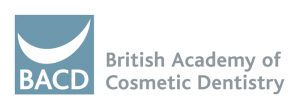Skills and self-esteem: building confidence in dentistry
Featured Products Promotional FeaturesPosted by: Dental Design 1st June 2023

It’s widely recognised that confidence is one of the most significant factors affecting performance in the workplace.[i] Building your professional confidence through learning and skill progession can reap substantial rewards for your career in dentistry.
Benefits of being clinically confident
Research shows that an increase in professional confidence directly affects quality of clinical practice, leading to improved communication with patients, greater willingness to take on more complex procedures, increased job satisfaction and, ultimately, career progression.[iii] Studies show that a clinician’s enhanced understanding of a subject area leads to their greater self-assurance in planning treatment, together with an increased ability to communicate in better detail with the patient. This in turn results in an increase in treatment acceptance and patient satisfaction – a ‘virtuous circle’ that serves to improve clinician confidence further.[iv]
Focusing on benefits for the patient, there is a clear relationship between work-related confidence in a practitioner and positive patient perception of their experience in the healthcare setting.[v] In addition, conveying professional confidence to a patient can help not only to assuage dental fear – still such a prevalent issue[vi] – but also to cultivate patient trust.
Building skills and confidence
As registrants of the General Dental Council (GDC), dentists are expected to develop their professional knowledge and skills throughout their working life, staying abreast of current best practice.[vii] Continuing Professional Development (CPD) should be tailored specifically to you, enabling you to focus on developing skills and competence in areas you are least confident in. Over time, this will enhance your capabilities across a broad range of modalities.
The multi-faceted nature of dentistry means there are many ways to build up your capabilities as a clinician and therefore your professional confidence. Attending training courses, for example, or finding a suitable mentor are excellent structured learning options. Being alert to opportunities for gaining experience across less familiar fields or observing colleagues’ work in complex treatments helps to accumulate advanced knowledge and awareness. Staying abreast of specific industry events and keeping up to date with a wide range of technical developments further broaden your overall knowledge base.
Don’t forget soft skills
It’s not just bigger-picture activities that can have an impact on work-related confidence. Fine-tuning soft skills can help to push your dentistry and your confidence further. For example, if public speaking induces anxiety, practising smaller-scale talks with colleagues in a quieter boardroom may help to build confidence in this area.[viii] Alternatively, consider training in communication or business presentation skills.
Peer recognition and support
Professional confidence can also be cultivated through relationships within the workplace and wider industry. Recognition from colleagues regarding particular skills and expertise can be a huge boost to professional self-esteem: a clinical recommendation, for example, or reference in an academic article. Sharing information, in print, online or in person, enhances standing amongst colleagues, improves communication skills and contributes to the professional pool of knowledge.
Validation of effort
Industry accreditation is a tangible demonstration of your expertise to patients and colleagues – a sign of ‘earned’ professional skill and a great boost to your confidence. Gaining such an accolade is an excellent way to structure and drive the building and honing of skills. By joining a dynamic and forward-thinking organisation such as the British Academy of Cosmetic Dentistry (BACD), dentists can apply for the prestigious BACD Accreditation. The value of this scheme lies in the breadth of the clinical cosmetic dentistry skills that are assessed by experts in the field. The points-based process is designed to be manageable alongside day-to-day professional activity and assesses eight case types in total including smile makeover, indirect shade matching, tooth replacement with natural gingival architecture and complex direct composite bonding.
A journey, not a destination
“We must have perseverance and above all confidence in ourselves”, Marie Curie, physicist and chemist, famously said. Consciously and sub-consciously, we are all evolving professionally every day, learning and absorbing new information directly and indirectly from all manner of sources and experiences. The confidence that results from this learning benefits both you and your patients, empowering you to take your clinical career where you want it to go.

The final registration submission deadline for BACD Accreditation in 2023 is Thursday 7 September.
For further enquiries about the British Academy of Cosmetic Dentistry visit www.bacd.com
Dr Simon Chard
BDS Hons (Lond, 2012), Bsc Hons
Principal; Dentist
GDC No. 228692
Simon@rothleylodgedentalpractice.co.uk
Dr Simon Chard BDS (Hons)BSc(Hons) qualified with Honours from King’s College London Dental Institute in 2012. In 2015 he was voted the best Young Dentist in London and also the overall Best Young Dentist in the UK at the prestigious Dentistry Awards.
Simon is very passionate about providing beautiful, healthy smiles for his patients and is a big promoter of using digital technology to simplify cosmetic and implant dentistry. further to this Simon is a director of the British Academy of Cosmetic Dentistry, helping to shape the future of cosmetic dentistry in the UK.
Dental education is something that is a major part of Simon’s professional career and he has dedicated thousands of hours to advanced training from the best dentist’s around the world. Further to this Simon regularly teaches other dentists in the topics of digital dentistry, dental photography and minimally invasive aesthetic dental techniques.
Simon comes from generations of dentists and works in private and mixed practice in London And Surrey.
Co-Founder PARLA toothpaste tabs
[i] Owens KM, Keller S. Exploring workforce confidence and patient experiences: a quantitative analysis PXJ Patient Experience Journal. Vol 5, issue 1, pp. 97-105. 2018. Available at: https://pxjournal.org/cgi/viewcontent.cgi?article=1210&context=journal. Accessed April 6, 2023.
[ii] Holland K, Middleton L, Uys L. Professional Confidence: A Concept Analysis. Scandinavian Journal of Occupational Therapy. July 2011, 19(2):214-24 DOI: 10.3109/11038128.2011.583939. Abstract available at: https://pubmed.ncbi.nlm.nih.gov/21728746/. Accessed March 23, 2023.
[iii] Fine P, Leung A, Bentall C, Louca C. The Impact of Confidence on Clinical Dental Practice. Available at: https://pure.port.ac.uk/ws/portalfiles/portal/12674336/The_Impact_of_Confidence_on_Clinical_Dental_Practice.pdf. Accessed April 6, 2023.
[iv] Fine P, Leung A, Bentall C, Louca C. The Impact of Confidence on Clinical Dental Practice. Available at: https://pure.port.ac.uk/ws/portalfiles/portal/12674336/The_Impact_of_Confidence_on_Clinical_Dental_Practice.pdf. Accessed March 23, 2023.
[v] Owens KM, Keller S. Exploring workforce confidence and patient experiences: a quantitative analysis PXJ Patient Experience Journal. Vol 5, issue 1, pp. 97-105. 2018. Available at: https://pxjournal.org/cgi/viewcontent.cgi?article=1210&context=journal. Accessed April 6, 2023.
[vi] Silveira ER, Cademartori MG, Schuch HS, Armfield JA, Demarco FF. Estimated prevalence of dental fear in adults: A systematic review and meta-analysis. J Dent. May 2021; 108:103632. doi: 10.1016/j.jdent.2021.103632. Epub 2021 Mar 9. PMID: 33711405. Available at: https://pubmed.ncbi.nlm.nih.gov/33711405/. Accessed March 22, 2023.
[vii] General Dental Council: Standards for the Dental Team, June 2014. Available at: https://www.gdc-uk.org/docs/default-source/standards-for-the-dental-team/standards-printer-friendly-colour86d42fee1e2f440e8faaa3b80983334a.pdf?sfvrsn=98cffb88_5. Accessed March 23, 2023.
[viii] Molinsky A. If You’re Not Outside Your Comfort Zone, You Won’t Learn Anything. Harvard Business Review. July 29, 2016. Available at: https://hbr.org/2016/07/if-youre-not-outside-your-comfort-zone-you-wont-learn-anything. Accessed March 23, 2023.








